







Read More
Master of Business Administration (MBA) is a 2 year full time programme offered by the Department of Management, Assam down town University. The programme has four semesters. Which consists of core and optional courses. Each individual course follows a structure comprising two components, with Theory accounting for 50 marks and Internal Assessment for 50 marks, excluding specific practical subjects. The minimum passing threshold for successful completion is set at a combined score of 50%. A total of 50 marks is allocated for the evaluation of the Summer Project report or Thesis by the respective Guide. An additional 50 marks are designated for the Viva and Presentation, which will be assessed by a panel of instructors appointed by the Head of the Department (HOD) specifically for this purpose. The minimum passing threshold for successful completion is set at a combined score of 50%. If a student fails in a Semester Examination, he/she will be declared failed and he/she has to reappear in the subsequent Compartmental Examinations or in the same Semester Examination next year.
Year wise Course Details
Courses for this semester
This is an intermediate level course designed for students with little to no skills official management. Through this, we introduce the Through this course, selected short readings, and self-paced activities, students gain both conceptual and practical knowledge of core concepts of financial planning to, Define the scope of personal financial planning and understand its impact, Make progress towards financial goals and avoid common mistakes, Account for rates of return and opportunity cost, Determine the present value of single and multiple cash flows, Review taxation basics including filing, deductions, exemptions, credits, Understand options to defer or avoid taxes legally and responsibly, Get ahead in a low interest rate environment, Deepen the understanding of how money impacts your personal satisfaction.
This course provides a comprehensive understanding of the fundamental principles of management and explores the behavioral dynamics of individuals and groups within organizations. It focuses on key management functions such as planning, organizing, leading, and controlling, while analyzing how these functions contribute to organizational performance.
To provide a basic understanding of the value and use of quantitative methods in administrative and operational problem solving and making . To develop an understanding of a variety of statistical and quantitative techniques applicable to a wide range of business situations; to understand about various theorems and will be able to use statistics for analyzing data with graphs
The purpose of this course is to apply micro economic concepts and techniques in evaluating business decisions taken by firms. The emphasis is on explaining how tools of standard price theory can be employed to formulate a decision problem, evaluate alternative courses of action and finally choose among alternatives
.
The Accounting for Managers course describes how accounting transactions are compiled into financial statements and how information about company performance can be extracted from those statements.
Courses for this semester
This course is meant to understand basics of Marketing Management, about product, Brands and its Promotion Mix, distribution of products from manufacturers and the marketing environment.
Upon completion of this course, students will be acquainted with various tools and techniques used in financial management, gain knowledge of financial statements components, and develop the skills to analyze and interpret financial information for managerial decision-making. They will also be familiar with techniques in cash, inventory, and receivables management, understand sources and uses of finance, and be able to evaluate capital expenditure decisions. The course will prepare students to address contemporary issues in financial management and apply their knowledge in real-world scenarios.
Through this course, students will have a comprehensive understanding of the basic functions of Human Resource Management, its scenario in India, and the various aspects of staffing, compensation management, and human resource development. They will also be aware of global trends and challenges in HRM, enabling them to apply their knowledge in diverse organizational contexts.
Upon completion of this course, students will have the ability to understand the principles and practices of Production Management, study the different phases of Operations Management, acquire knowledge of productivity, learn about production planning and design, and comprehend the principles of Total Quality Management. They will be well-equipped to apply these concepts in real-world scenarios and contribute effectively to the efficient functioning of production and operations in diverse industries.
Upon completion of this course, students will appreciate the essential complementarity between values and skills, understand the significance of sustained happiness and prosperity, and develop a holistic perspective towards life and profession. They will be equipped to apply universal human values in ethical conduct, trustful interactions, and mutually enriching relationships. The course will foster a deep understanding of the interconnectedness of human existence with nature, leading to a balanced and fulfilling life.
To know the concept and definition of professional development and other theories of development, and also to know about the sustainable development issues. 2. To enable students utilize past knowledge of various programmes and policies for effective implementation wherever applicable. 3. To facilitate students for developing an integrated approach for implementation that is suitably relevant to the situations. 4. To equip students with strong commitment and social responsibility in order to bring about a transformative change in communities when they take up their responsibility. 5. To enhance professional skill and talent of students to face and overcome any challenges in the business organization
This course is aimed to develop the social and soft skills and promote a holistic development of the learners, Keeping in mind the 360 degree learning methodology the students are engaged in different ac-tivities headed under different clubs viz. Dance, music, photography, drama, literary etc., The students are encouraged to participate in regular club activities, workshops, competitions as per their interest and hobbies, The student members of the club are trained represent AdtU in various inter University student and national level competitions, Renewed personalities are invited to conduct workshops that benefit the members and students by giving them the plat-form to learn from experts in the respective fields. Assign Faculties
Courses for this semester
The subject strives to provide information pertaining to business, corporate, and global reforms taking place globally and familiarizing the students to new formats of the market. In order to acquaint the students with knowledge of disaster management to handle critical situations through practical application of strategies of control and prevention. The subject tries to outline and illustrate how the market for corporate strategy and control is related to corporate governance and help students relate their knowledge of India context to emerging trends of the global world. Further, the subject enhances the learning and analytical skills of the students to solve business cases and provide strategic solutions
The primary objective of a consumer behaviour syllabus is to provide students with a comprehensive understanding of the psychological, social and cultural factors that influence consumer-decision making processes. It develops an understanding of various influences on consumers from friends and family, reference groups and society in general.
Advertising – its meaning, definition and functions; advertising as an element of marketing mix; Types of advertising – institutional, industrial, political etc. The subject enables to understand the strategy of human resource development and career planning.
1. To understand the strategy of human resource development and career planning. 2. To know the concept of training and development. 3. To learn about the training evaluation. 4. To understand about the ROI Analysis of Training Programme. 5. To understand about training strategy for organizational growth
1. To understand the strategy about manpower resource planning. 2. To learn about the tools of analyzing work and design jobs. 3. To learn about the concept and need of appraising and managing performance. 4. To understand about performance management process. 5. To understand about E-HRM and International HRM.
Risk Management is a highly valued discipline and eagerly sought after by organizations that are heavily regulated, require high resiliency, deal with environmental, health, and safety issues, involved in project management, insurance, financial services, and also within the public sector.
To understand systematic trading approaches and the role of technical analysis in systematic trading. 2. To understand the operations of primary and secondary markets in India, including IPOs, rights issues, and stock exchange functions. 3. To learn about the phases involved in portfolio management, from formulation to revision, and their significance in achieving investment objectives.
To know the concept and definition of professional development and other theories of development, and also to know about the sustainable development issues. 2. To enable students utilize past knowledge of various programmes and policies for effective implementation wherever applicable. 3. To facilitate students for developing an integrated approach for implementation that is suitably relevant to the situations. 4. To equip students with strong commitment and social responsibility in order to bring about a transformative change in communities when they take up their responsibility. 5. To enhance professional skill and talent of students to face and overcome any challenges in the business organization
Course Description: MOOCS is provided through the Coursera Platform, which is an online course where students are allowed to take courses/ courses per semester based on the hours with relevance to the credit. The courses are provided by international universities across the world. During the courses, students have to submit assignments and quizzes.
Course Description: MOOCS is provided through the Coursera Platform, which is an online course where students are allowed to take courses/ courses per semester based on the hours with relevance to the credit. The courses are provided by international universities across the world. During the courses, students have to submit assignments and quizzes
Course Description: MOOCS is provided through the Coursera Platform, which is an online course where students are allowed to take courses/ courses per semester based on the hours with relevance to the credit. The courses are provided by international universities across the world. During the courses, students have to submit assignments and quizzes.
Courses for this semester
The course explores the creation and management of start-up businesses. It concentrates on initial strategy, location, financing, staffing, daily activities controls and taxes. Students develop a business plan for a start-up business. This course evaluates the necessary qualities and characteristics of the successful entrepreneurial profile. It helps students recognize and determine the steps necessary to design and develop a startup for-profit business and to open and operate a small business enterprise. It describes the basic forms of small business ownership and identifies the necessary skills and competencies needed by an entrepreneur
This course is designed to enhance the ability to undertake research, critical thinking, and excellent communication
The course aims at exposing the students to the global business activities, marketing in international business and global forces transforming the international business today. The course would develop a general perspective about managing international business both in operational as well as strategic context.
The Course will include the concept of industrial relations and its importance. The scenario of IR in India. The different concepts related to industrial relations such as collective bargaining and dispute. The origin of Trade union in India and its various elements. The course will also provide knowledge on different laws on labour and social security in India.
This specialization course delves into the intricate realm of Compensation Management, exploring its conceptual framework, theories, policies, and practical applications within
Practical insights into managing financial distress and restructuring in corporate scenarios and implement ERM strategies, fostering skills to identify, assess, and manage risks for informed decision-making in organizational contexts
This particular paper provides the basic concepts, definitions and terms related to income Tax, Corporate Tax along with the determination of the residential status of an individual and scope of Total income. Basic knowledge of direct and indirect taxation including GST and CENVAT along with deductions and exemptions applicable are included in order to acquaint the students with the basic concept of income tax and computation of corporate tax liability
Course Description: MOOCS is provided through the Coursera Platform, which is an online course where students are allowed to take courses/ courses per semester based on the hours with relevance to the credit. The courses are provided by international universities across the world. During the courses, students have to submit assignments and quizzes
A comprehensive understanding of the differences between goods and services marketing, enabling students to distinguish key characteristics and strategies unique to each domain. Assign Faculties

CST- Common scholarship test is a national and international level online MCQ based examination funded for intellectual empowerment by Assam down town University.
CST- Maximum enrolment each year is 120 seats and any 10+2 students can apply. Adtu is northeast India’s first placement driven university to provide 100% scholarship benefits worth 10 cr.
CST aims to inspire brilliant and competent students to pursue further education. Accredited with a prestigious grade by NAAC, UGC and AICTE.
Explore more scholarships that can help you reach out your goal with financial aid.
This scholarship is valid on the basis of the board/university examination
| 95% & above | 100% Scholarship on all semester |
| 90%-94.9% | 50% Scholarship on all semester |
| 80%-89.9% | 25% Scholarship on all semester |
This scholarship is valid on the basis of the board/university exam
| National & International Level | 100% Scholarship on all semester |
| State Level | 50% Scholarship on all semester |
| District Level | 25% Scholarship on all semester |
This scholarship is valid on the basis of the board/university exam
| National & International Level | 100% Scholarship on all semester |
| State Level | 50% Scholarship on all semester |
| District Level & NCC Certificate Holder | 25% Scholarship on all semester |
Discover a multitude of world-class amenities and cutting-edge resources at Assam down town University, enhancing your academic journey to new heights.
The Start-Up & Incubation Centre at Assam down town University provides a supportive environment for young entrepreneurs to develop and grow their business ideas. The center provides mentorship, funding, and networking opportunities to help innovative ideas become successful businesses.
SFURTI scheme to support rural entrepreneurs and innovators, an initiative by the Ministry of MSME
TIDE 2.0 scheme for ICT-based startups which provides a grant of Rs. 4L and Rs. 7L under EiR and Grant categories respectively, an initiative by the Ministry of MeitY.
dtVL Ideation, an incubation program for early-stage entrepreneurs with a market-ready solution/product, offering interest-free loans up to Rs. 2 lakhs.
Sprout UP, an incubation program for students, faculties, and researchers with innovative business ideas, prototypes, or technology solutions.


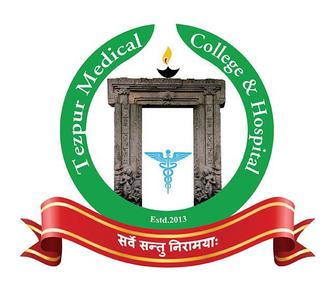











![24[7].ai 24[7].ai](https://adtu.in/files/247ai.jpg)








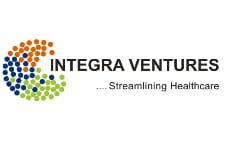





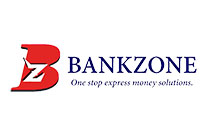






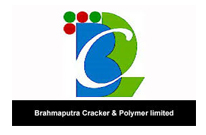






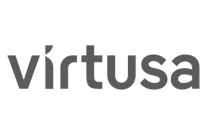
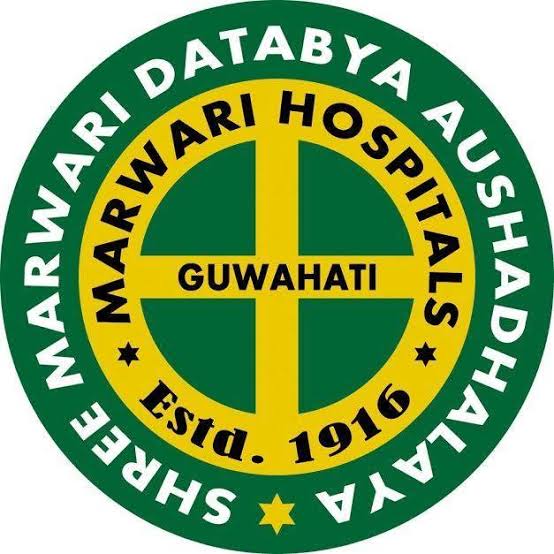
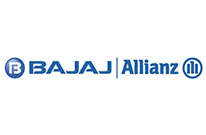
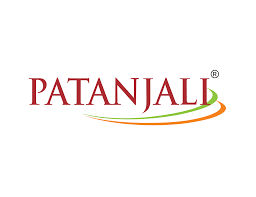


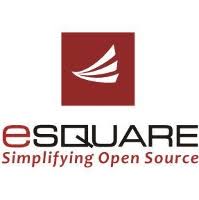
"I am a BBA student of 3rd semester. I hail from Bhutan. I vow that I am having a great experience i...
"AdtU is amazing. I am a BBA student of 2019-22 batch and I am just grateful for the amount of oppor...
Let us be grateful to the people and place who makes us happy. They are the charming gardeners whom ...
Currently I am pursuing MBA in Assam Down Town University. MBA is the professional course through wh...
AdtU is a university that focuses on giving knowledge, education and simultaneously making the stude...
The Assam downtown University has been a great learning experience. The university has provided me w...
My experience with AdtU has been splendid one indeed. Little needs to said about its scenic infrastr...
As a student I am very glad that I have got an opportunity to study here in Assam downtown universi...
My name is Sakhyajit Roy. I?m from Tripura. I joined the university on Auguest, 2017 as a student of...
I share immense pleasure to share my post graduate program experience in Assam down town University....
AdtU is a platform where I got golden opportunities to feed my zeal for knowledge through the dynami...
I am fortunate to get an opportunity to study here in Assam Downtown University. The best thing abou...
Our university is one of the best place for developing ourselves in the field of research and acedem...
ADTU is a university that is very good interms of infrastructure, academics and placements. Our tea...
It is one of best private colleges in North East India, it also provides a good environment for ed...
ADTU is a good University which provides the students with best quality lectures and ensures comfort...
The environment of Assam downtown university is very pleasant.The department of BMLT is very good a...
The university has all the necessary facilities and amenities for students . The classrooms and the ...
Assam downtown University is well recognised all over india. In the ongoing pandemic situation it ha...








